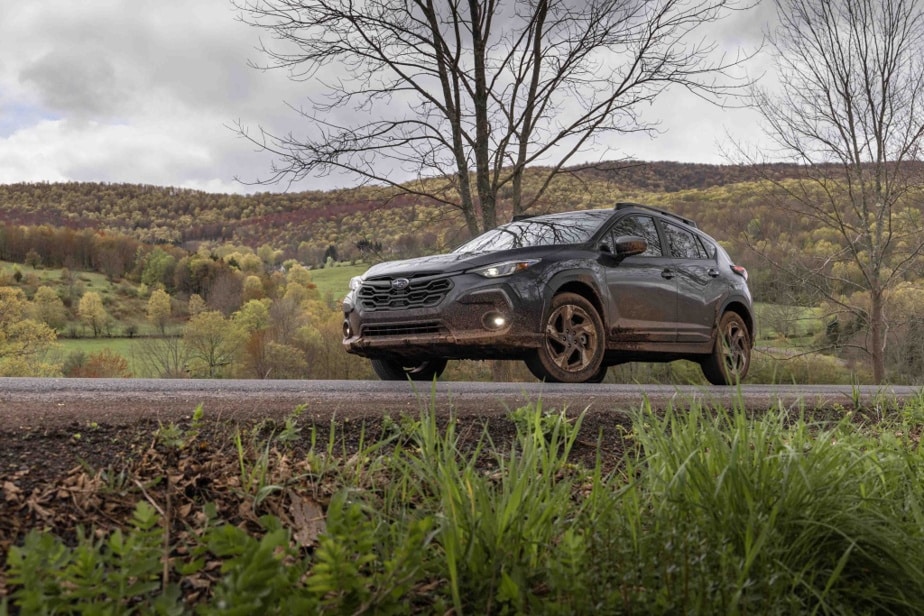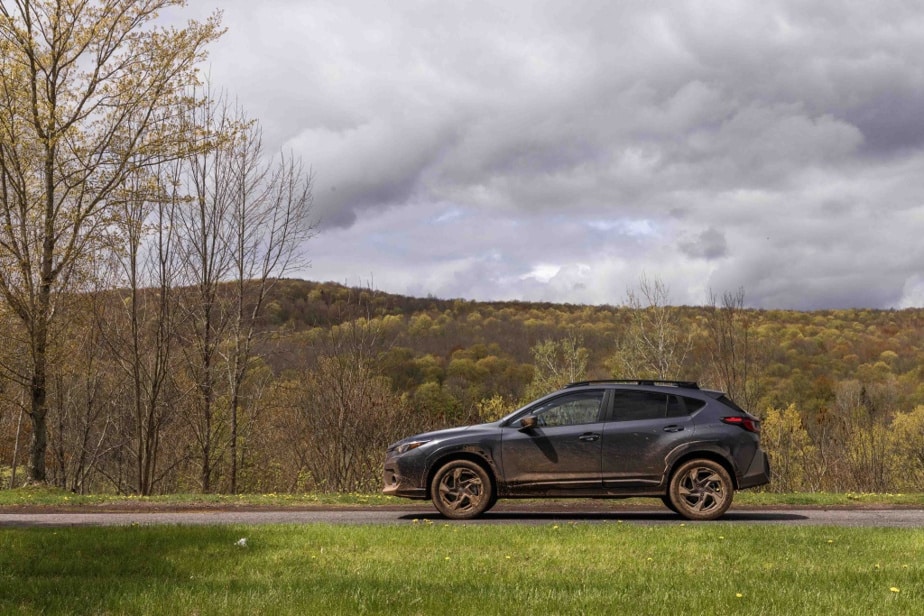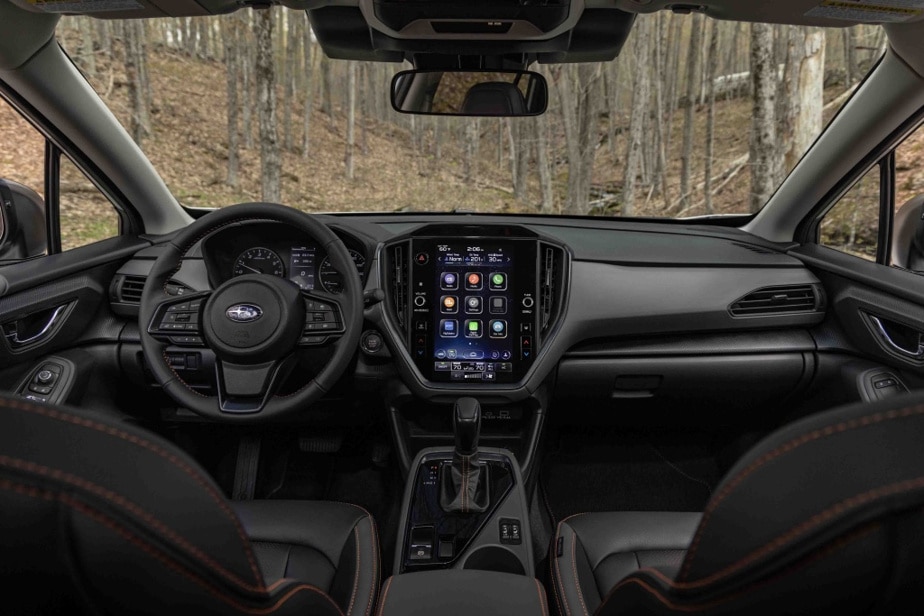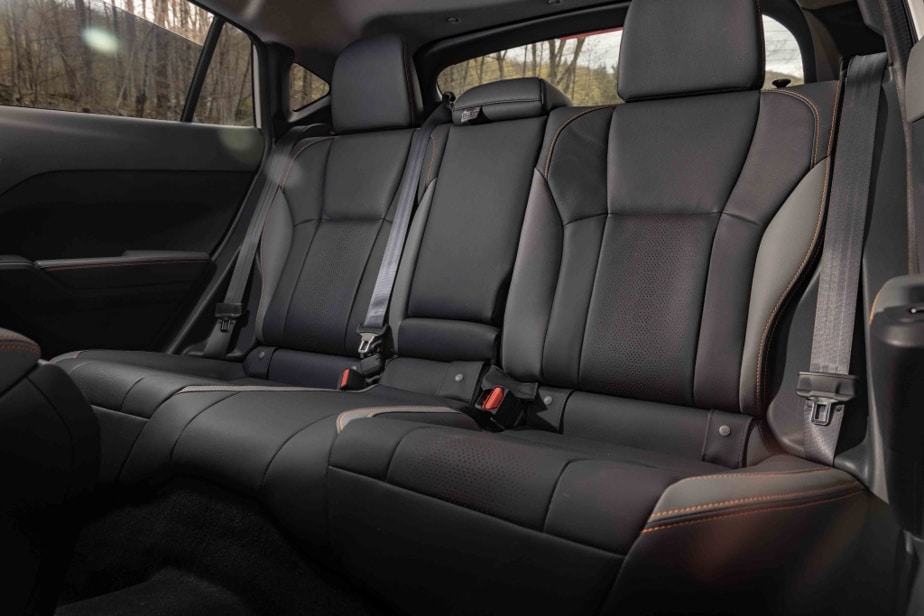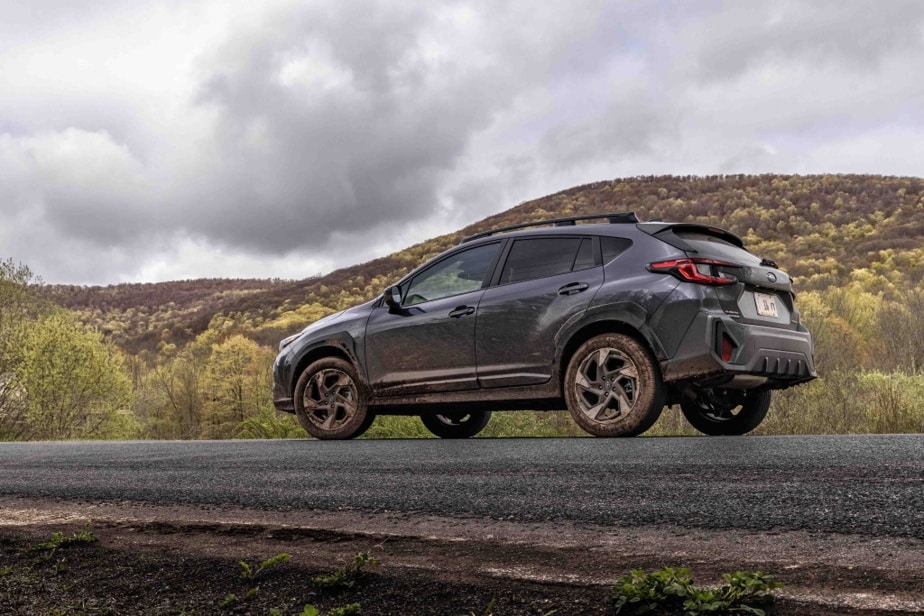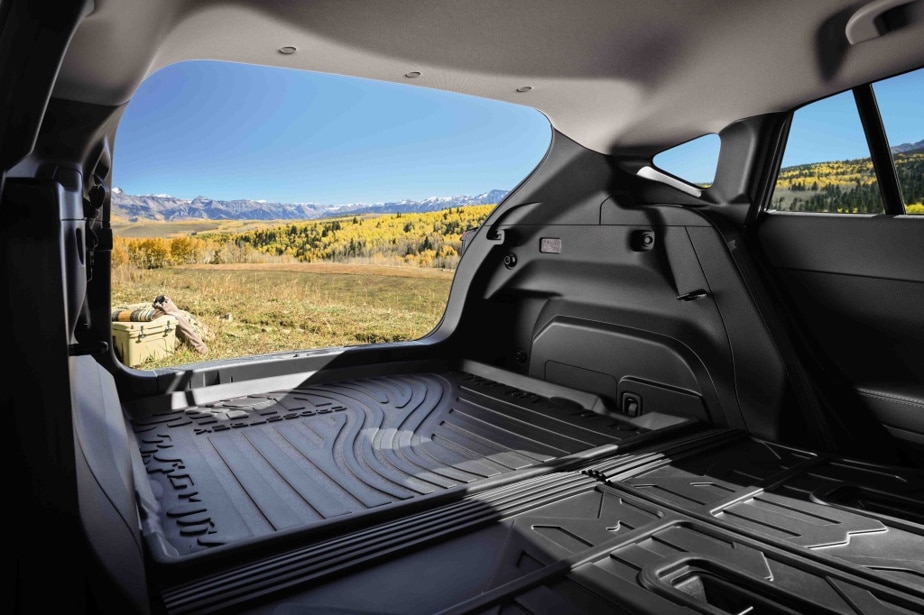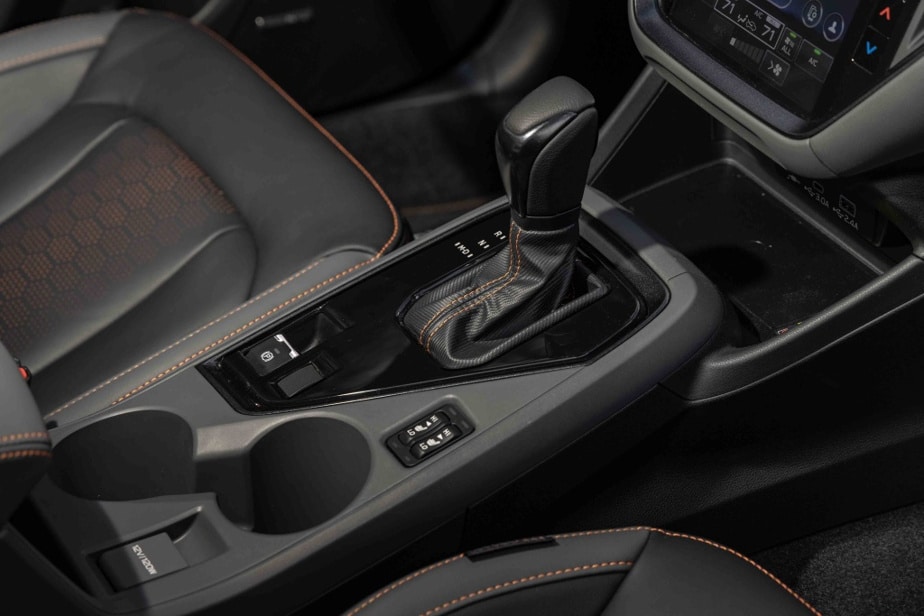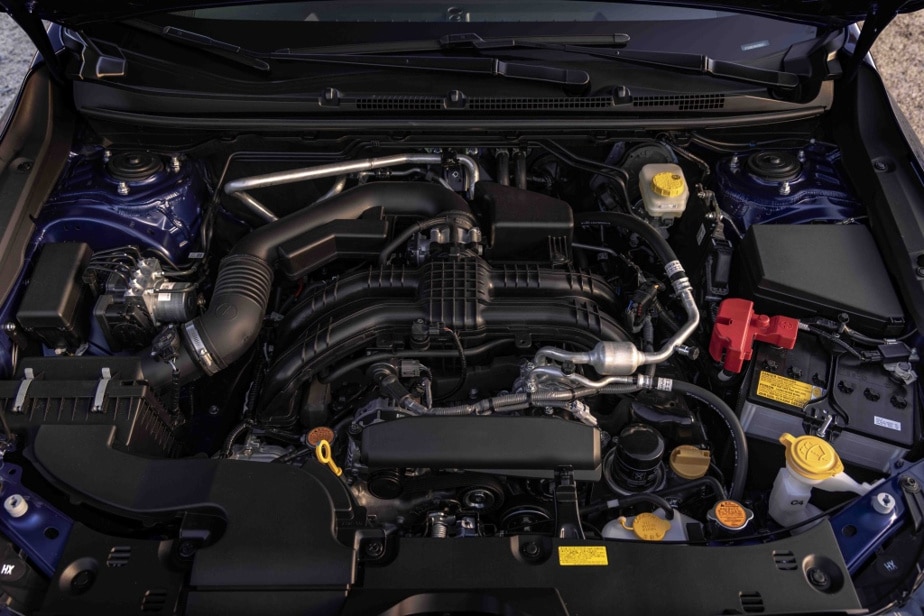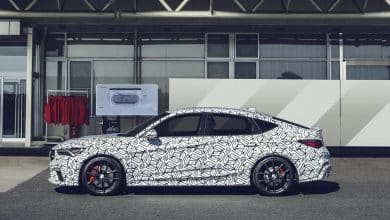Test bench | Subaru Crosstrek: not too much, just enough

Contents
We do not change the recipe
The commercial success of Subaru’s Crosstrek, whose third generation has just been marketed, retains a part of mystery. This model, which is neither very flamboyant nor very sporty, is nevertheless one of the darlings of its category. Therefore, cautious, the new Crosstrek refines the recipe for its success and carefully avoids deviating from what has made its good fortune.
Like many vehicles highly valued by consumers, the Crosstrek practices transformation in continuity. No question of jostling a conquered clientele that has allowed the Crosstrek to rise to the rank of sales standard bearer at Subaru. As might be expected, the third generation submits to this imposed exercise with reassuring consistency. Others will probably prefer to call it chilly.
-
PHOTO PROVIDED BY SUBARU
We don’t choose the Crosstrek for its dynamic performance, but rather for safety – in all circumstances and on all terrains.
-
PHOTO PROVIDED BY SUBARU
Of all the transformations – often very subtle – made to this third generation, the rigidity of the chassis tops the list.
-
PHOTO PROVIDED BY SUBARU
As soon as the doors are opened, no change is really obvious, except that the dashboard has been brought into line with the new standards of modern life.
-
PHOTO PROVIDED BY SUBARU
The back seat of the Subaru Crosstrek
-
PHOTO PROVIDED BY SUBARU
The platform remains the same, but it has been reinforced by 10% by tripling the structural adhesives and revising the suspension turrets.
-
PHOTO PROVIDED BY SUBARU
The trunk of the Subaru Crosstrek
-
PHOTO PROVIDED BY SUBARU
The manual gearbox now gone, we have to rely on the CVT, which is not bad in its kind.
-
PHOTO PROVIDED BY SUBARU
No progress in terms of efficiency, performance or consumption, whether it is the 2 L or the 2.5 L. In fact, the illusion of a gain, with the 2 L, comes essentially from the abandonment of the manual gearbox.
1/8
It doesn’t matter which camp you’re on, let’s just say the “new” Crosstrek isn’t thick butter. Its hood lifts up to accommodate the same engines that powered the previous generation. The only modification they received was to reduce vibration. An objective achieved by fortifying the crankshaft and the upper part of the sump with oil. No progress in terms of efficiency, performance or consumption, whether it is the 2 L or the 2.5 L. In fact, the illusion of a gain, with the 2 L, comes essentially from the abandonment of the manual gearbox. The latter was primarily responsible for burning 1.6 L/100 km more than the continuously variable automatic transmission. This is now exclusive to the entire range.
As for the hybrid engine, the management of Subaru Canada recalls that it does not issue any comments on its future products. That said, at the company’s headquarters in Öta, Japan, the commercialization of this two-headed engine is confirmed as early as 2025. Subaru does not, however, specify the markets that will obtain it, hence the silence of Canadian leaders.
Retouching, mainly
The guardians of the Crosstrek temple can therefore be reassured, the aesthetic modifications are introduced in homeopathic doses.
Apart from the addition of textured coatings supposed to remind that this Subaru is the ideal companion for practicing your outdoor activities, a neophyte will hardly see any differences. Too bad for the house stylists who notably deepened its look (headlights), bulged its wings and its hood.
Most consumers won’t see it. For them, no possible doubt, it is indeed a Crosstrek.
So, a surprise awaits us inside? Alas no. As soon as the doors are opened, no change is really obvious, except that the dashboard has been brought into line with the new standards of modern life. The central screen, whose size varies between 7 in. and 11.6 in., displays more refined functions, more efficient voice assistance and easier fitting. An attentive consumer will note the delicate inclination of the console towards the cockpit.
Now, what cannot be seen, but is felt: the seats. These adopt a new frame to support the sacrum and pelvis more comfortably, say their designers. We want to take their word for it, but the important thing to remember is that compared to previous generations, these front seats will feel softer over long distances.
Of the four versions in the catalog (soon to be five with the arrival of the Wilderness), Subaru estimates that the Onyx ($36,503) will be the most popular. The slightly less expensive and powerful Touring ($34,703) is worth considering if your budget is tighter.
This utility, which straddles two categories (urban and compact), retains the same interior volumes (cabin and trunk) as the previous version. No one will find fault with that.
More fluffy than before
Of all the transformations – often very subtle – made to this third generation, the rigidity of the chassis tops the list. The platform remains the same, but it has been reinforced by 10% by tripling the structural adhesives and revising the suspension turrets. The goal has been achieved: the ride is smoother than it used to be. On the other hand, those who appreciated this vehicle for its agility and the liveliness of its reactions will perhaps have the impression of losing out here.
Hands on the wheel, the new Crosstrek still appears as reassuring and stable, but responds with more softness and slowness after having had the opportunity to compare directly with an earlier model. We gain in comfort, but we lose a little driving pleasure, even if this aspect has never been the dominant point of this vehicle (see the competition).
The manual gearbox now gone, we have to rely on the CVT, which is not bad in its kind. More refined, it no longer encourages the engine to howl its rage as before. It is now possible to have a conversation on board at full speed.
Despite its additional horsepower, the 2.5 L is hardly faster than the 2 L. Slightly more greedy in hydrocarbons, a bit faster to launch, this flat engine is of a placid nature. Its followers will kindly call it “satisfying.”
In fact, you don’t choose the Crosstrek for its dynamic performance, but rather for the safety — in all circumstances and on all terrains — that it provides. Its constant-mesh all-wheel drive makes it a solid ally. To thwart many of the traps set for us by winter or, on sunny days, to venture into the trails without fear of getting bogged down to the door handles. A feature that allows Subaru, it is said, to seduce a clientele keen on outdoor activities.
Suggested retail price
From $28,995 to $36,995
Consumption
8.6L/100km (2.5L)
WE love
- Its versatility
- Its degree of refinement
- Its increased comfort
We love less
- Its manual gearbox that disappears
- His lack of dynamism
- Its stagnating consumption
Our Verdict
A modest overhaul that betrays a certain pretension.
Technical sheet
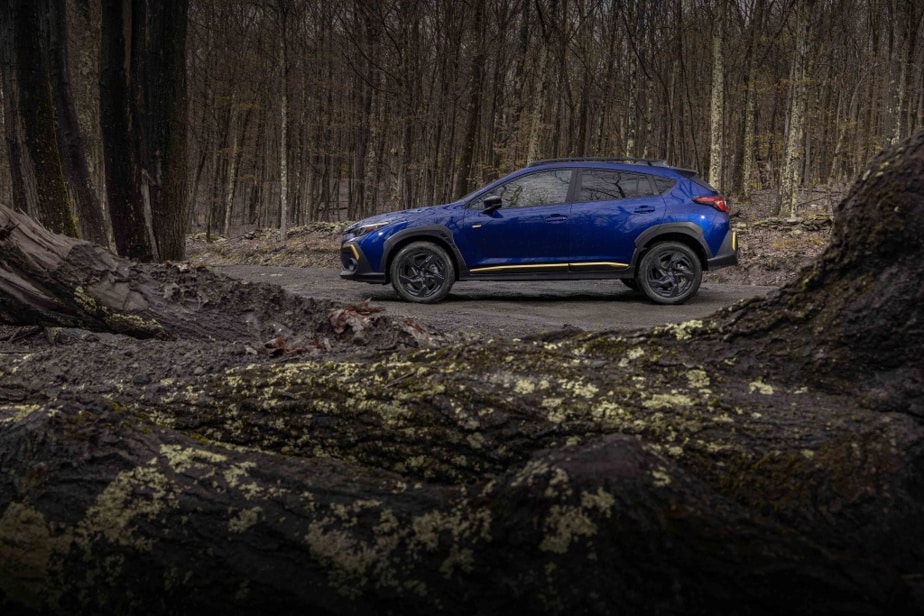
PHOTO PROVIDED BY SUBARU
Subaru Crosstrek
Engine
- H4 DOHC 2.0L (Convenience and Touring): 152 hp @ 6000 rpm, 145 lb-ft @ 4000 rpm
- H4 DOHC 2.5L (Onyx and Limited): 182 hp @ 5800 rpm, 178 lb-ft @ 3700 rpm
Performance
- Empty weight: between 1486 and 1519 kg
- Ground clearance: 221mm
- Maximum towing capacity: 680 kg
Gearbox
- Standard: Continuously Variable Automatic (CVT)
- Optional: none
- Drive mode: all-wheel drive
Tires
- 225/60R17 (Commodity and Touring)
- 225/55R18 (Onyx and Limited)
Tank capacity and recommended gasoline
Dimensions
- Wheelbase: 2670mm
- Length: 4480mm
- Height: 1400mm
- Width: 1832mm
And three

PHOTO PROVIDED BY SUBARU
Subaru Crosstrek Wilderness
It was written in the sky. After the Outback and the Forester, now the Crosstrek, in turn, is adopting a Wilderness version within its range. Like the aforementioned models, this newcomer raises its ground clearance (236.2 mm), revises its suspensions, its tires and the gear ratio of the differential to face even more difficult terrain. But the most interesting element concerns the radical increase in towing capacity, which goes from 680 kg to 1587.5 kg, a performance attributable to the addition of an oil cooler. This takes care of keeping the gearbox cooler.
The origins

PHOTO PROVIDED BY SUBARU
The official presentation of the Subaru XV Crosstrek in 2012
This photo brings us back to the official presentation of the XV Crosstrek at the 2012 New York Auto Show. It was then the North American preview of this model which had revealed itself to the world a few months earlier at the Motor High Mass in Frankfurt. A classic hybrid version entered the scene in 2014. We had to wait for the release of the second generation of Crosstrek in 2017 before seeing the appearance of a rechargeable version of this two-headed mechanism (half petrol, half electric). It could travel about thirty kilometers without the spark plugs of its combustion engine.
The Press will soon publish the test of the following vehicles: Alfa Romeo Tonale, Ford Mustang, Porsche Cayenne and Toyota Highlander. If you own one of these vehicles or are considering purchasing one, we would love to hear from you.

